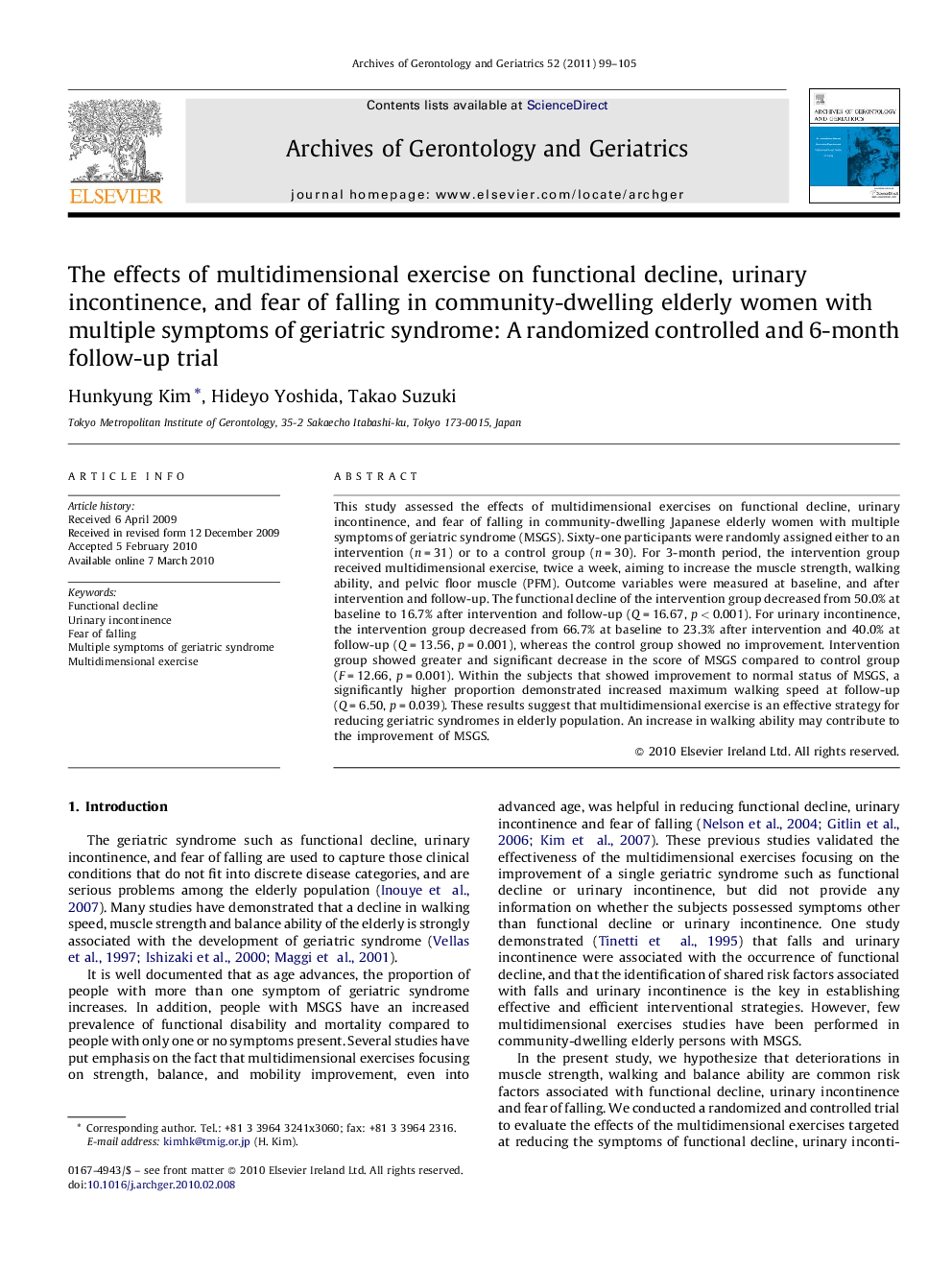| Article ID | Journal | Published Year | Pages | File Type |
|---|---|---|---|---|
| 1903603 | Archives of Gerontology and Geriatrics | 2011 | 7 Pages |
This study assessed the effects of multidimensional exercises on functional decline, urinary incontinence, and fear of falling in community-dwelling Japanese elderly women with multiple symptoms of geriatric syndrome (MSGS). Sixty-one participants were randomly assigned either to an intervention (n = 31) or to a control group (n = 30). For 3-month period, the intervention group received multidimensional exercise, twice a week, aiming to increase the muscle strength, walking ability, and pelvic floor muscle (PFM). Outcome variables were measured at baseline, and after intervention and follow-up. The functional decline of the intervention group decreased from 50.0% at baseline to 16.7% after intervention and follow-up (Q = 16.67, p < 0.001). For urinary incontinence, the intervention group decreased from 66.7% at baseline to 23.3% after intervention and 40.0% at follow-up (Q = 13.56, p = 0.001), whereas the control group showed no improvement. Intervention group showed greater and significant decrease in the score of MSGS compared to control group (F = 12.66, p = 0.001). Within the subjects that showed improvement to normal status of MSGS, a significantly higher proportion demonstrated increased maximum walking speed at follow-up (Q = 6.50, p = 0.039). These results suggest that multidimensional exercise is an effective strategy for reducing geriatric syndromes in elderly population. An increase in walking ability may contribute to the improvement of MSGS.
